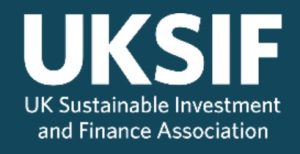ESG Investing and Global Carbon Emissions
ESG investing is generally considered to be able to reduce global carbon emissions, and thus has attracted the attention of investors. However, an empirical paper from researchers found that the application of ESG investing may instead increase the global carbon emissions. This article will briefly summarize the paper and analyze the reasons for this phenomenon.
Impact of ESG Investing on Different Companies
In the paper by Kelly Shue and Samuel Hartzmark, the goal of ESG investing is to reduce the financing costs of low-emitting companies (green companies) and increase the financing costs of high-emitting companies (brown companies). The market generally believes that this kind of incentive can improve the impact of enterprises.
After studying the emission data of more than 3,000 large enterprises in the past two decades, the paper found that when the financing costs of green enterprises were reduced, their carbon emissions did not change substantially. On the contrary, when the financing cost of brown enterprises increases, their carbon emissions will increase significantly. This phenomenon is the opposite of the incentives for ESG investing, but the market may be ignoring it.
Related Post: CDP Releases Corporate Decarbonization Report
Performances of Green Companies and Brown Companies
Since the average carbon emission of brown enterprises is 261 times that of green enterprises, a small increase in carbon emissions of brown enterprises may require carbon emission reduction actions of many green enterprises to offset its impact. For green companies, their carbon emissions are related to their industries—investors often favor industries such as medicine and finance. The nature of the business of these industries produces very limited amounts of carbon emissions. Even with incentives, they play a very limited role in the research of energy-saving and emission-reduction technologies and actual carbon-reduction actions.
For brown companies, the increase in financing costs and punitive measures may lead to increased operating pressure in the short term. These enterprises have to expand production in order to obtain more profits and maintain themselves. At the same time, the increase in capital cost of brown enterprises is not conducive to their research on energy-saving technologies, which leads to the slow progress of these enterprises’ carbon emission reduction activities.

Absolute and Relative Emission Reduction Targets
Similar to the actions of green companies and brown companies, the market’s attention to carbon emission reduction targets is also somewhat biased. At present, the market pays more attention to relative emission reduction targets. If a green enterprise can reduce carbon emissions by 20% every year, it may be considered as a representative of environmental protection. However, for brown enterprises, these targets are difficult to achieve, no matter from the perspective of actual business or incentive measures.
Brown businesses tend to set absolute reduction targets in order to gradually reduce their carbon emissions. Investors pay less attention to these enterprises than green enterprises, which leads to the neglect of the needs of brown enterprises in terms of investment and financing. For example, although some sustainable funds have the goal of promoting sustainable development, they focus on green companies in asset allocation and exclude brown companies.
Even leaving out sustainability goals, there is not much room for improvement in the performance of green businesses. From the perspective of absolute emissions, even if green enterprises do not emit at all, they may not be important as brown enterprises to reduce some emissions. However, brown companies are neglected by sustainable goals in ESG investment, making it more difficult to reduce emissions.
How to Solve This Problem
The carbon emission contradiction between green enterprises and brown enterprises does not mean that it is difficult to achieve sustainable goals. Investors need to pay more attention to brown companies if they are to see global carbon emissions reductions go well. These enterprises have a special position in the emission reduction, and negative incentives cannot have a positive impact.
Reference:
Counterproductive Sustainable Investing: Impact Elasticity of Brown and Green Firms





